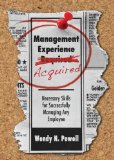Helping Your Staff to Experience Success

Why Help Staff to Succeed?
All too many business owners make the mistake of thinking that if they train and improve their staff, their staff will leave for better opportunities elsewhere. But this isn’t necessarily the case. In fact, employees that are constantly encouraged to experience success through support and training are much more likely to be satisfied in their roles and this can seriously help with staff retention levels. Holding onto good staff members will reduce recruitment costs and prevent you from having to experience dips in productivity as you hire, train and introduce new members to your team as a replacement. On top of this, when you train staff, you benefit from the skills and expertise that they acquire through their training. You will simply find yourself with the best quality team you can possibly have.
Software and Tools
Make sure that your team has the software and tools they need to do their job to the highest standard. Whether that’s communications software like Microsoft dynamics phone integration or a new piece of machinery that helps with the manufacturing process. Ensuring that your team has the best tools in the trade will make sure that they can do their job to the highest standard. Unsure of developments in different areas of equipment and software to specific roles? Chances are your team working in that area knows about the latest developments and releases. Talk to them. They’ll be able to advise you on whether their current options are up to scratch or whether they could do with an upgrade.
Training
The most straightforward and logical way to help your staff to experience success is to provide them with job-specific training. There are so many different options that you might want to consider. A copywriter might benefit from training in SEO. Management may benefit from knowing how to use Excel and other spreadsheet software. Someone in marketing could benefit from a marketing masters degree. The list goes on. Make sure to do some research and consider which areas you want your team to progress into. This can help to introduce you to training programs that benefit everyone. You may also want to consider health and safety training, such as how to do CPR, fire steward or fire marshall training and more.
Personal Development Plans
Remember that not all training has to be completely job-specific. You can help your team with personal development in areas that aren’t necessarily directly relevant to their role. Instead, you can help them to build traits, confidence and other skills that will supplement their position and help them in a variety of professional situations they may find themselves in. For example, if someone feels uncomfortable with public speaking, you may want to help them with some therapy, confidence building exercises and courses in public speaking or speech making that can help them to overcome this. If your team member wants to be healthier, you can help them along their fitness journey, which can help them to feel healthier, fitter and less likely to take time off work. If your team member wants to learn a second language, you can help them with lessons or language learning software, which will then benefit your company if you ever decide to expand into overseas markets.
It really is essential that you help your staff to progress and experience success while they’re working for you. This will keep them on board and significantly increase productivity, which benefits them and benefit you and your business.


 Grace Killelea is founder and CEO of Half The Sky Leadership Institute, a program that develops high potential women and builds critical leadership skills. She is a former Fortune 50 company SVP of Talent, a skilled executive coach and sought after keynote speaker. Grace is also author of the highly anticipated title,
Grace Killelea is founder and CEO of Half The Sky Leadership Institute, a program that develops high potential women and builds critical leadership skills. She is a former Fortune 50 company SVP of Talent, a skilled executive coach and sought after keynote speaker. Grace is also author of the highly anticipated title,  An individual’s manager should seek to provide ongoing performance feedback. This, however, is not always the case. Even high performing managers may, at times, be challenged by time constraints or have so many direct reports that it is not possible to provide each individual the amount of feedback desire. Additionally, the StrategyDriven Professional recognizes that performance is best evaluated by several different individuals, each possessing unique perspectives and having demonstrated competency in the areas to be assessed. Consequently, the professional needs others to provide feedback to cover management’s gaps and provide multiple perspectives.
An individual’s manager should seek to provide ongoing performance feedback. This, however, is not always the case. Even high performing managers may, at times, be challenged by time constraints or have so many direct reports that it is not possible to provide each individual the amount of feedback desire. Additionally, the StrategyDriven Professional recognizes that performance is best evaluated by several different individuals, each possessing unique perspectives and having demonstrated competency in the areas to be assessed. Consequently, the professional needs others to provide feedback to cover management’s gaps and provide multiple perspectives. StrategyDriven Podcasts focus on the tools and techniques executives and managers can use to improve their organization’s alignment and accountability to ultimately achieve superior results. These podcasts elaborate on the best practice and warning flag articles on the StrategyDriven website.
StrategyDriven Podcasts focus on the tools and techniques executives and managers can use to improve their organization’s alignment and accountability to ultimately achieve superior results. These podcasts elaborate on the best practice and warning flag articles on the StrategyDriven website.
 Wendy Powell is the author of
Wendy Powell is the author of  Jeffrey Gitomer is the author of The Sales Bible, Customer Satisfaction is Worthless Customer Loyalty is Priceless, The Little Red Book of Selling, The Little Red Book of Sales Answers, The Little Black Book of Connections, The Little Gold Book of YES! Attitude, The Little Green Book of Getting Your Way, The Little Platinum Book of Cha-Ching, The Little Teal Book of Trust, The Little Book of Leadership, and Social BOOM! His website,
Jeffrey Gitomer is the author of The Sales Bible, Customer Satisfaction is Worthless Customer Loyalty is Priceless, The Little Red Book of Selling, The Little Red Book of Sales Answers, The Little Black Book of Connections, The Little Gold Book of YES! Attitude, The Little Green Book of Getting Your Way, The Little Platinum Book of Cha-Ching, The Little Teal Book of Trust, The Little Book of Leadership, and Social BOOM! His website,